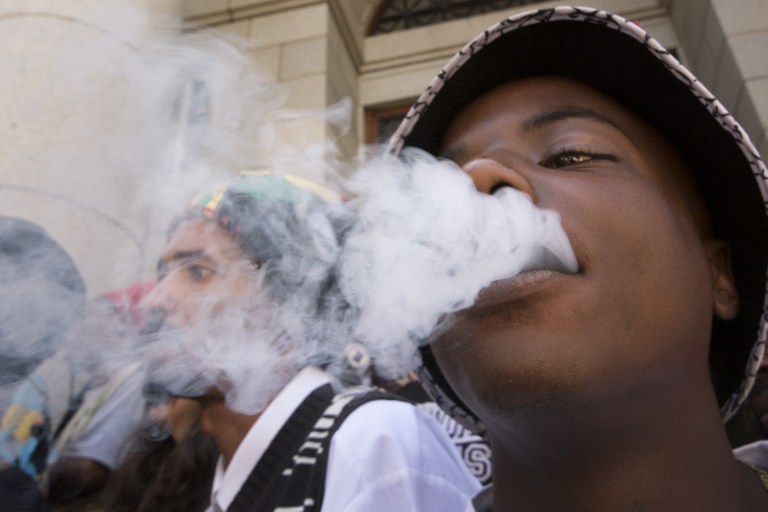By Ra-ees Moerat
With the landmark ruling in the Western Cape High Court, regarding the private home usage and the cultivation of cannabis, which was previously deemed unlawful, experts say the legislation may negatively impact communities, where the use of narcotics has since increased.
Former British undercover policeman, Neil Woods, posed for 14 years as a drug user to infiltrate criminal drug gangs in the United Kingdom (UK).
After deciding that the war on drugs has failed, Woods now works for the Law Enforcement Action Partnership (LEAP) organisation. His exposé of undercover policing, Good Cop Bad War, was an international best-seller.
The data, stats and information presented at the South African Drug Policy Week 2017 in Cape Town, is largely based on the drug climate in the UK. However, the messages relayed through Woods’ (and the other speakers’) presentation, resonates with Cape Town and the rest of South Africa.
Woods argues that a drug user – not excluding non-drug users – should be arrested for committing a crime and not for ‘simply consuming a substance’, therefore, absolving the drug-user from prosecution.
“Many of the people I was encountering were just problematic drug users in need of help, rather than hardened criminals,” he says.
He says that organised crime controls prohibited markets and, therefore, it is in the interest of the organised crime industry, to elevate its customer base. He adds that the number of drug addicts increase when the drug gets criminalised by the courts.
“If you use, for example heroine, gangsters will encourage user dealers to get more customers. They [the user dealers] will encourage them [the users] to make their habit grow and that is how the market grows,” he says.
According to Woods, only a regulated market, controlled by the government can reduce the number of addicts and educate people about the misuse of drugs.
He further articulates that it is in the poorer communities where people use drugs simply to ‘get by’, much like in South Africa.
“This is how they cope with their situation and environment. If you’re struggling to feed yourself and you’re struggling with terrible home conditions, you may well be more inclined to use drugs.”
“I have worked amongst homeless people and I have spent a lot of time with them. I can say with pretty much certainty that if I was homeless and I was living on the street, I would use drugs to get through it,” Woods elaborated.
He presents some disheartening statistics on racial profiling and drugs that I feel, resonates with Cape Town and the rest of South Africa.
“A black person is six times more likely to be stopped and searched for drugs than a white person. Once in court, a black person is 13 times more likely to be sent to prison than a white person. That’s the most horrific exponential racism and it’s endemic in the system.
“The only way [that] this racial profiling can be stopped, is to end the war on drugs, because a war on drugs, is a war on the poor and is a war on minorities,” he argues.
Meanwhile, a colonel responsible for substance abuse programmes based in the division of visible policing and social crime prevention at national level, Refilwe Matlamela, explains the approach taken by South African Police Service (SAPS) in combating drug abuse.
“The way, in which we approach it [drug abuse] in South Africa, we address it as a societal problem. This means that we establish community partnerships and include civil society in the resolutions as a whole.
“We tend to focus more on the young people, to prevent them from being destroyed since they are the future of our country,” she says.
Matlamela further states that the poorer community in South Africa is the target market for drug sales.
“The more poor you are, the more vulnerable you become in being a prime sales target for drug lords,” she says.
Matlamela concludes by saying that it is important to attend conferences like the SA Drug Policy Week, where different countries can learn from each other. According to her, South Africa’s new drug master plan will be finalised in 2018. VOC






 WhatsApp us
WhatsApp us 

